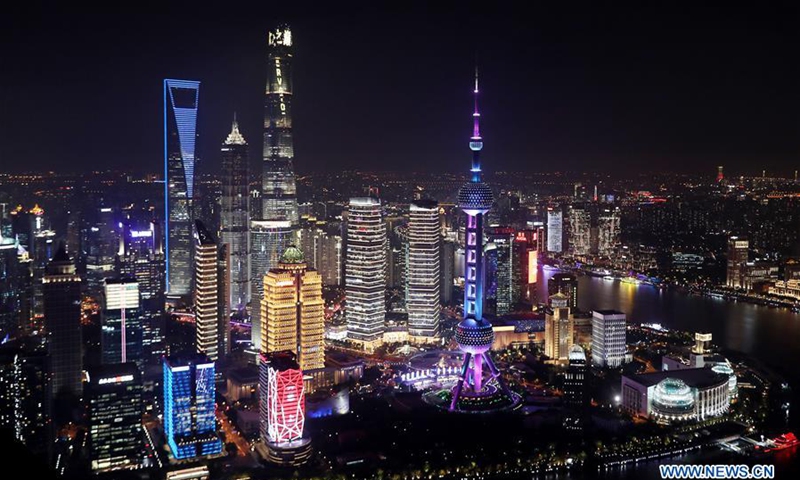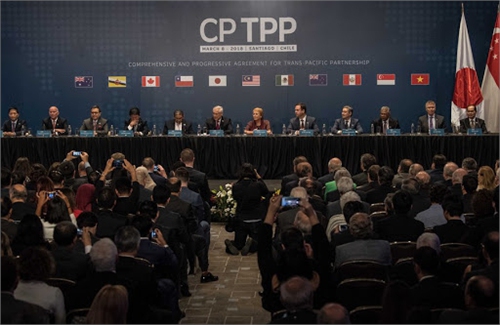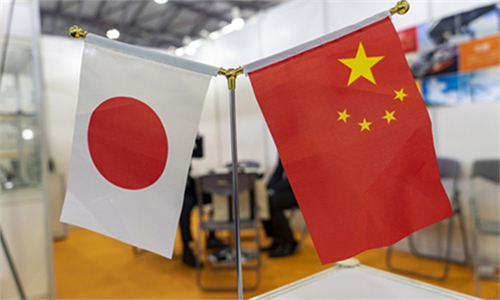SOURCE / INDUSTRIES
China has potential to join CPTPP: experts
Certain criteria have been met, but hurdles may persist over standards

Photo taken on Oct. 26, 2020 from the Sinar Mas Plaza shows a view of the Lujiazui area in Shanghai, east China. A light show will be held on Nov. 5 to celebrate the opening of the third China International Import Expo (CIIE), which will take place in Shanghai from Nov. 5 to 10. (Xinhua/Fang Zhe)
From the services trade sector including financial services to Beijing's efforts to narrow the scope of the nation's negative list, China has met some criteria to join the Comprehensive Progressive Trans-Pacific Partnership (CPTPP), although it has higher standards in some aspects, Chinese experts said.
However, there might be some issues such as different views of labor protection and state-owned enterprises if China, which signed the final agreement of the Regional Comprehensive Economic Partnership (RCEP) this month, wants to join the CPTPP, which could be hurdles in future negotiations, they said.
The comments came after media reported that Japanese Economy Minister Yasutoshi Nishimura said that the CPTPP has stricter standards than the WTO, and China might need to be prepared for these criteria if it wants to participate in this partnership.
China holds an open and positive attitude toward joining the CPTPP, Gao Feng, a spokesperson for the Ministry of Commerce, said on Thursday, reiterating calls for open, transparent and mutually beneficial regional free trade arrangements.
"As China has been emphasizing further opening up, especially after the negotiations of the RCEP and the first phase of the China-US trade deal, China is well-prepared in many sectors such as opening up in the financial services sector and the protection of intellectual property rights," Chen Fengying, a research fellow at the China Institutes of Contemporary International Relations, told the Global Times on Monday.
"Even through the CPTPP's criteria are allegedly stricter, many terms including lowering tariffs, the movements of people and narrowing the negative list were actually included in China's previous trade talks," Chen noted
For example, in the financial sector, a major sector under the CPTPP framework, China fully opened this area this year, said Chen.
"Pursuing high-quality and high-standard free trade has been China's long-term goal, and China's experience in developing free trade zones in many coastal provinces has prepared the country to participate in high-quality free trade agreements," Tian Yun, vice director of the Beijing Economic Operation Association, told the Global Times on Monday.
"Free trade zones in Shanghai and some coastal cities, for example, have already entered a high-quality development period as services trade including digital trade has taken a major portion of their total GDP, and these cities' GDP per capita levels are close to many developed countries," Tian said.
However, beside China's strength, there are also issues and challenges that need to be addressed including labor protection, and China's relatively uneven development between its eastern and western areas, experts said.
Due to differences in social and political systems, there might be different views of labor protections - for example, the forms of labor unions - and subsidies for Chinese state-owned enterprises, Chen noted.
Also, if China is to join the CPTPP, the impact on China's western area where economic development is relatively behind should not be ignored, Tian warned.
"These issues could be challenging topics if China entered the negotiation phase, and the negotiations could last for years," Chen said.
But overall, experts held positive views on China's participation in the CPTPP, as China's future plans including the 14th Five-Year Plan (2021-25) are also aiming at high-quality development and further reform and opening-up.
"It's normal for a regional trade agreement to take several years to reach the final stage, but as China's goal is high-quality development, joining the CPTPP will be mutually beneficial," Tian said.


